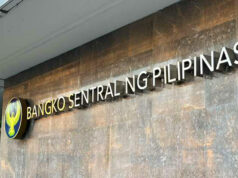Security risks top of mind in ASEAN
HEADS of state of the Association of Southeast Asian Nations (ASEAN) meeting in Bangkok, Thailand on Sunday led off the ASEAN Leaders’ Vision Statement on Partnership for Sustainability with pledges to “strengthen defense cooperation to tackle traditional and non-traditional security challenges”; “enhance strategic dialogue and promote practical cooperation on regional defense and security issues”; “reaffirm the importance of maintaining and promoting peace, security, safety and freedom of navigation in and overflight above the South China Sea”; promote guidelines to avert “unplanned encounters at sea”; to “combat terrorism in all its forms” and to “enhance cybersecurity cooperation” besides a host of more general resolutions in the economic, social and cultural spheres.
But while security issues accounted for more than a fourth of the 39 points in the leaders’ statement, there was no mention of China’s increasingly aggressive stance in disputed waters in the region nor of the plight of Myanmar’s Rohingya population.
The Chairman’s Statement of the 34th ASEAN Summit issued separately afterwards generally kept to that outline, though with more detailed background. It also said ASEAN leaders “discussed the matters relating to the South China Sea and took note of some concerns on the land reclamations and activities in the area, which have eroded trust and confidence, increased tensions and may undermine peace, security and stability in the region.”
ASEAN leaders on Saturday adopted a joint declaration against marine plastic pollution and pledged to conclude this year talks on the Regional Comprehensive Economic Partnership scheme pushed by China.
In his own statement at the summit’s plenary session, President Rodrigo R. Duterte voiced concern about the ongoing “trade war between the United States and China” that has been “creating uncertainty”, has been “taking a toll on global growth” and “could hinder the ongoing processes of economic integration” in Southeast Asia.
“The US and China must… resolve their differences before the situation spirals out of control and we in ASEAN must strengthen our support for a rules-based and open multilateral trading system.”
At the same time, he noted that “[t]errorism, violent extremism and transnational crimes continue to threaten our security” while “[i]llegal drugs… corrode the very fabric of our societies.”
But while Mr. Duterte had said in Davao City last Friday that he would “talk lengthily” about China’s claim to much of the South China Sea — in the wake of an incident involving suspected Chinese militia posing as fishermen who rammed and sank a Philippine fishing boat — he left this maritime row and this incident out of his speech in Bangkok.
Malacañan Palace — in a press release issued late Sunday afternoon by Salvador S. Panelo, chief presidential legal counsel and presidential spokesperson — insisted that Mr. Duterte “expressed concern and disappointment over the delay in the negotiations for a Code of Conduct (CoC) in the South China Sea.”
“The Chief Executive explained that the longer the delay for an early conclusion of the CoC, the higher the probability of maritime incidents happening and the greater the chance for miscalculations that may spiral out of control.”
Sought for comment on the absence of any reference in Mr. Duterte’s speech to China’s actions in the disputed waters, Maria Ela L. Atienza, chairperson of the University of the Philippines-Diliman Political Science department, replied by e-mail on Sunday, saying: “Unfortunately, by not even mentioning the West Philippine/South China Sea dispute in his intervention, President Duterte is missing the opportunity to use the ASEAN Summit as a forum to discuss the territorial dispute.”
“ASEAN, together with dialogue partners including China, may be in a good position to discuss the issue given that several ASEAN countries also have overlapping claims in the disputed territories,” Ms. Atienza noted.
“In fact, ASEAN has agreed to pursue and explore the creation of a Code of Conduct on the South China Sea with dialogue partners which can involve joint exploration and more peaceful settlement of disputes.”
She further said that “failure to mention the dispute may also mean that the President is still downplaying the issue publicly or does not want to use the recent incident where 22 Filipino fishermen were thrown at sea when their fishing vessel figured in a ramming by a Chinese vessel as a starting point to discuss the urgency of discussing the disputes, ASEAN’s relations with China, and the security of fisherfolks and communities not only in the Philippines but in other ASEAN countries that are vulnerable due to the lack of a Code of Conduct in the disputed territories.” — with Arjay L. Balinbin and Reuters



